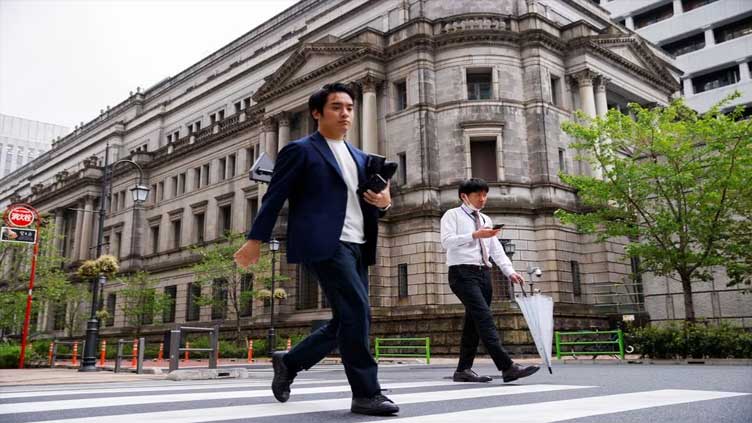Some in BOJ called for more debate on future easy policy exit

Business
Some in BOJ called for more debate on future easy policy exit
TOKYO (Reuters) - Some Bank of Japan policymakers called for a deeper debate on a future exit from ultra-loose monetary policy as the economy makes progress toward achieving the bank's price target, a summary of opinions at this month's meeting showed on Wednesday.
While the board agreed to maintain massive stimulus for the time being, the nine members were split between those who were cautious about raising interest rates and others who saw the need to start preparing for a future exit.
One member said the timing of normalising the BOJ's ultra-easy policy was "getting closer" given the increasing likelihood that the bank's 2% inflation target for Japan would be reached sustainably.
"To avoid the risk of high prices damaging consumption and undermining the chance of achieving our price target, we should not miss the opportunity to normalise monetary policy," the member said.
But another said the bank could wait at least until the outcome of next year's spring wage talks because inflation was unlikely to sharply exceed the 2% target even if wages rise significantly, the summary showed.
At the Dec. 18-19 meeting, the BOJ maintained ultra-loose policy settings and made no change to its dovish guidance that pledges to take additional monetary easing steps as needed.
Two other opinions called for the need for more debate on a future exit from easy policy with one member saying the BOJ must "deepen discussions on the exit timing and the appropriate pace of rate hikes thereafter," the summary showed.
Another opinion said the BOJ's current dovish forward guidance would not necessarily constrain the bank from changing interest rates, the summary showed.
Many market players expect the BOJ to end its negative rate policy next year with some seeing the chance of a policy shift in January or April.
Japan has seen inflation hold above 2% for over a year and some firms have signalled their readiness to keep raising wages, increasing the likelihood that the BOJ will finally begin to raise rates and move away from its status as a dovish outlier among global central banks.
Since taking the helm in April, BOJ Governor Kazuo Ueda has moved towards dismantling the radical stimulus of his predecessor by relaxing the bank's grip on long-term rates in July and October. Markets see the next step to be a hike in short-term rates to around zero from the current 0.1%.
Ueda said on Monday the likelihood of achieving the BOJ's inflation target was "gradually rising," signalling the chance of a policy shift. The BOJ holds its next policy-setting meeting on Jan. 22-23.


